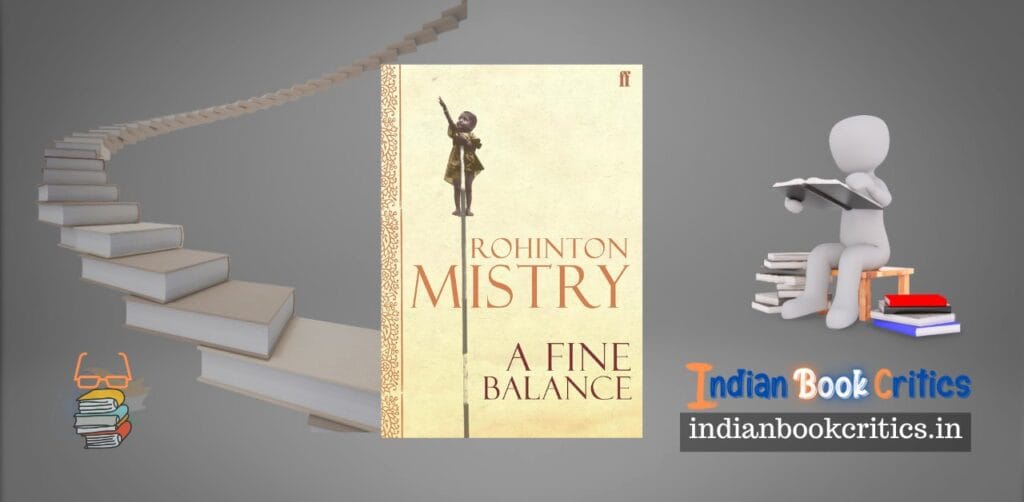Anita Desai requires no introduction! Her fame precedes her. There are many novels by her that made to many lists, short and long, in the world of English literature. Today, I will share my thoughts on a very intriguing work by her – Fire on the Mountain. Fire on Mountain by Anita Desai won the Sahitya Akademi Award in 1978. What’s special in this novel? Is it thought-provoking even today? Can young readers navigate through the lazy, monotonous and going-nowhere pages of this fictional work? What’s special about this publication by Anita Desai that makes it debatable even 46 years after the publication? In this book review, I will discuss the same.
Anita, one can assume after reading her initial publications, embraced a template of self-exploration whenever she wrote something. It was standard for her to bring women characters to the fore and argue for their cases. In Fire on the Mountain, the same happens. Albeit, this time, there was something more to the usual theme of internal exploration. Nanda lives alone in a house in the mountains. Moreover, she does not want any intrusion as well!
“She wanted no one and nothing else. Whatever else came, or happened here, would be an unwelcome intrusion and distraction.”
There are three parts in the novel, with the symbolical place, Carignano, embedded at the centre. 34 chapters of the novel have Nanda Kaul’s recluse, conundrum, attempts, and despair to exhibit. Everything else is the byproduct of these internal emotions and accidentally become the storyline for this novel. And the story, to be frank, is slower than one might expect things to be. Once Nanda Kaul’s great-granddaughter Raka arrives in Carignano, things catch some pace. (Not very much, though.)
Listed on English Literature Education’s list of 10 Classic Indian English Novels you must read!
Anita Desai, through her long career as a novelist, embraced inaction – she lets her characters have conversations with their inner selves. Without disturbing their inertia and making them do things within their hearts and mind, Anita has been capable of telling many stories – externally as well! Now, before we move ahead to extend the next argument about inaction and unsaid soliloquies in the novel, let’s have an example of inaction, perfectly worded by the celebrated novelist.
“Mentally she stalked through the rooms of that house – his house, never hers – very carefully closing the wire-screen doors behind her to keep out the flies, looking sharply to see if the dark furniture, all rosewood, had been polished and the doors of the gigantic cupboards properly shut. She sniffed to make sure the cook was not smoking biris in the kitchen and to verify that all the metalware smelt freshly of Brasso.”
More than a novel of inaction, nevertheless, Fire on the Mountain is about human nature – dependency, fortune, fate, past, present, and future. Nanda retires herself into the abyss of seclusion believing she might never need the world again. Ila has to as she becomes unable. Raka chooses loneliness because of her troubled past. In short, fate brings these three ladies together (at least in their human form), but they cannot seek help (company) from each other as they no longer believe in productive liaisons (in society? the world? the family?).
In the novel, Ila ridicules the social structure in a joking manner. Though she immediately bursts into laughter after uttering these words, it holds significance. And readers who look for hidden meanings between the lines in novels like this one cannot ignore these words.
“Isn’t it absurd,’ she rattled on, ‘how helpless our upbringing made us, Nanda. We thought we were being equipped with the very best – French lessons, piano lessons, English governesses – my, all that only to find it left us helpless, positively handicapped.”
The story is sad. The narrative is slow. Inaction only acts (and rules) the entire storyline. Nevertheless, the novel certainly makes readers of traditional fiction happy. They can get detailed commentary on what’s going on behind the scenes. The novelist has put the facade on display, and explored the hidden corridors of the minds of Nanda, Rakka, and Illa!
Contemporary readers (who read thrillers and one-night-stand fiction) may not enjoy this novel a lot. There is nothing that might entertain them. Readers who have read philosophical fiction by R K Narayan, the social exhibition of Raja Rao, and the troubled realism of Mulk Raj Anand might find this novel worthy of their time. And it indeed is! Anita Desai has put her word paintings in an exhibition of her own. Linguistically rich, the novel offers many stories within one!
You can get a copy from Amazon India and enjoy this award-winning fiction by a celebrated author. Click the link below to go to the Amazon book page and grab a copy now.
Buy from Amazon India – click here.
Review by Ashish for Indian Book Critics
Fire on the Mountain by Anita Desai – Book Review
- Critical Rating
Summary
Nanda, Raka and Ila – three women standing against their fate. Neither embraces the other. Internal strife for survival beautifully painted by Anita Desai!





3 Comments. Leave new
This is an amazing review… I have read the book by Anita Desai and kind of agree with the assessment by the critic here. The book has many facets but seldom it happens that everything comes out… I hope this review will help many readers… albeit those who have already read the book and want some critical opinion…
Wonderfully written… I did not read a review of this book like before. It is always either all flowers or all thorns. This one balances the work of literature by Anita Desai as it is intended to be. Fire on the Mountain is a complex novel and the review brings out the details in an aptly judged manner. I cannot speak for all the readers, however. Thanks for the review and all the great opinions on the website!
Very interesting review of a classic work of fiction by Anita Desai… she has been alone at the top for a few decades now. I liked the way the critic has show respect for the author. However, I guess her books are out of sync with the time and generation now…